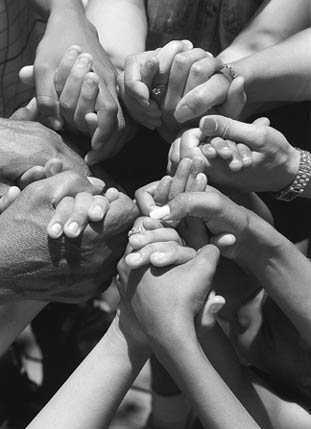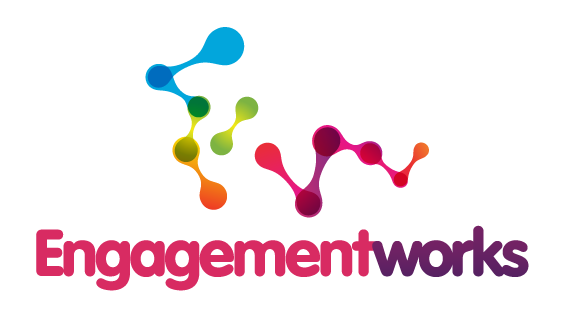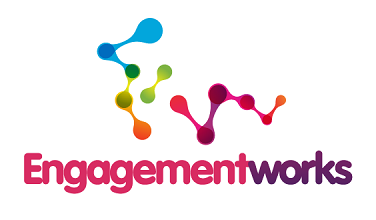It is commonly believed that the best decisions are those made by experts in the particular field in question. This belief has underpinned a reluctance of organisations to engage or consult with stakeholders or communities on significant decisions.
I must confess that working in local government in the late 1980s and early 1990s when consultation requirements were added to the Local Government Act, I was one of those people perplexed by the idea of consulting with the public about decisions to which I believed they could make no valuable contribution. Over time my view has changed, which is just as well because society has also changed. Today, more than ever, people want to be involved in decisions that impact their lives.
Huge controversies have ensued following significant decisions made where the public has had little or no input. A current example is the changes to education services in Canterbury.
As my thinking changed I realised that within every community there is a huge reservoir of very experienced, knowledgeable, skilled and innovative people willing to be involved in the decision-making process with the capacity to greatly improve outcomes, build positive relationships and avoid costly, time-consuming and energy-sapping controversies.
In his book “The Wisdom of Crowds” James Surowiecki asserts that it is a mistake to chase the expert or one right person who may have the answer. Under the right circumstances groups are remarkably intelligent and are often smarter than the smartest people in them. Groups do not need to be dominated by exceptionally intelligent people in order to be smart. When our imperfect judgements are aggregated in the right way our collective intelligence is often excellent.
Surowiecki’s “right circumstances” that a group needs to be smart are diversity, independence, and decentralisation.
Diversity adds perspectives that would otherwise be absent and takes away, or at least weakens, some of the destructive characteristics of group decision-making.
Experiments conducted by Scott Page, a political scientist at University of Michigan showed that groups made up of smart and not-so-smart people did better than groups of smart people only.
If a diverse group of people is assembled, possessing varying degrees of knowledge and insight, it can be better trusted with major decisions rather than leaving those in the hands of one or two “experts”, no matter how smart those experts are.
Diversity expands a group’s set of possible solutions and allows the group to conceptualise problems in novel ways. However, it also makes it easier for a group to make decisions based on facts, rather than on influence, authority, or group allegiance.
Diversity contributes not just by adding different perspectives to the group but also by making it easier for individuals to say what they really think.
Independence doesn’t mean isolation, but it does mean relative freedom from the influence of others. This is important because a group of people is far more likely to come up with a good decision if the people in the group are independent of each other.
Independence is important to intelligent decisions because Independent people have independent viewpoints, and are more likely to have new information, rather than the same old data everyone may be familiar with.
The idea of the wisdom of crowds takes decentralisation as a given and as good, since it implies that if you set a crowd of self-interested, independent people to work in a decentralised way on the same problem, instead of trying to direct their efforts from the top down, their collective solution is likely to be better than any other solution you could come up with.
In terms of decision making and problem solving, there are a couple of things about decentralisation that really matter:
Its great weakness is that there is no guarantee that valuable information which is uncovered in one part of the system will find its way through the rest of the system. Sometimes valuable information never gets disseminated, making it less useful than it would otherwise be.
A decentralised system can only produce genuinely intelligent results if there’s a means of aggregating the information of everyone in the system.
Through many experiments and actual case studies, the research concludes that where there is diversity, independence and decentralisation coupled with a way of aggregating the collective input from participants, then the crowd will almost always make better decisions than one or two experts. Given that there is a real reluctance in New Zealand society to engage stakeholders and communities in decision-making processes, instead relying on “experts”, there is much food for thought in what Surowiecki has written.
^DD
I must confess that working in local government in the late 1980s and early 1990s when consultation requirements were added to the Local Government Act, I was one of those people perplexed by the idea of consulting with the public about decisions to which I believed they could make no valuable contribution. Over time my view has changed, which is just as well because society has also changed. Today, more than ever, people want to be involved in decisions that impact their lives.
Huge controversies have ensued following significant decisions made where the public has had little or no input. A current example is the changes to education services in Canterbury.
As my thinking changed I realised that within every community there is a huge reservoir of very experienced, knowledgeable, skilled and innovative people willing to be involved in the decision-making process with the capacity to greatly improve outcomes, build positive relationships and avoid costly, time-consuming and energy-sapping controversies.
In his book “The Wisdom of Crowds” James Surowiecki asserts that it is a mistake to chase the expert or one right person who may have the answer. Under the right circumstances groups are remarkably intelligent and are often smarter than the smartest people in them. Groups do not need to be dominated by exceptionally intelligent people in order to be smart. When our imperfect judgements are aggregated in the right way our collective intelligence is often excellent.
Surowiecki’s “right circumstances” that a group needs to be smart are diversity, independence, and decentralisation.
Diversity adds perspectives that would otherwise be absent and takes away, or at least weakens, some of the destructive characteristics of group decision-making.
Experiments conducted by Scott Page, a political scientist at University of Michigan showed that groups made up of smart and not-so-smart people did better than groups of smart people only.
If a diverse group of people is assembled, possessing varying degrees of knowledge and insight, it can be better trusted with major decisions rather than leaving those in the hands of one or two “experts”, no matter how smart those experts are.
Diversity expands a group’s set of possible solutions and allows the group to conceptualise problems in novel ways. However, it also makes it easier for a group to make decisions based on facts, rather than on influence, authority, or group allegiance.
Diversity contributes not just by adding different perspectives to the group but also by making it easier for individuals to say what they really think.
Independence doesn’t mean isolation, but it does mean relative freedom from the influence of others. This is important because a group of people is far more likely to come up with a good decision if the people in the group are independent of each other.
Independence is important to intelligent decisions because Independent people have independent viewpoints, and are more likely to have new information, rather than the same old data everyone may be familiar with.
The idea of the wisdom of crowds takes decentralisation as a given and as good, since it implies that if you set a crowd of self-interested, independent people to work in a decentralised way on the same problem, instead of trying to direct their efforts from the top down, their collective solution is likely to be better than any other solution you could come up with.
In terms of decision making and problem solving, there are a couple of things about decentralisation that really matter:
- It fosters and is in turn fed by specialisation, which tends to make people more productive and efficient
- It increases the scope and diversity of the opinions and information in the system.
Its great weakness is that there is no guarantee that valuable information which is uncovered in one part of the system will find its way through the rest of the system. Sometimes valuable information never gets disseminated, making it less useful than it would otherwise be.
A decentralised system can only produce genuinely intelligent results if there’s a means of aggregating the information of everyone in the system.
Through many experiments and actual case studies, the research concludes that where there is diversity, independence and decentralisation coupled with a way of aggregating the collective input from participants, then the crowd will almost always make better decisions than one or two experts. Given that there is a real reluctance in New Zealand society to engage stakeholders and communities in decision-making processes, instead relying on “experts”, there is much food for thought in what Surowiecki has written.
^DD


 RSS Feed
RSS Feed
